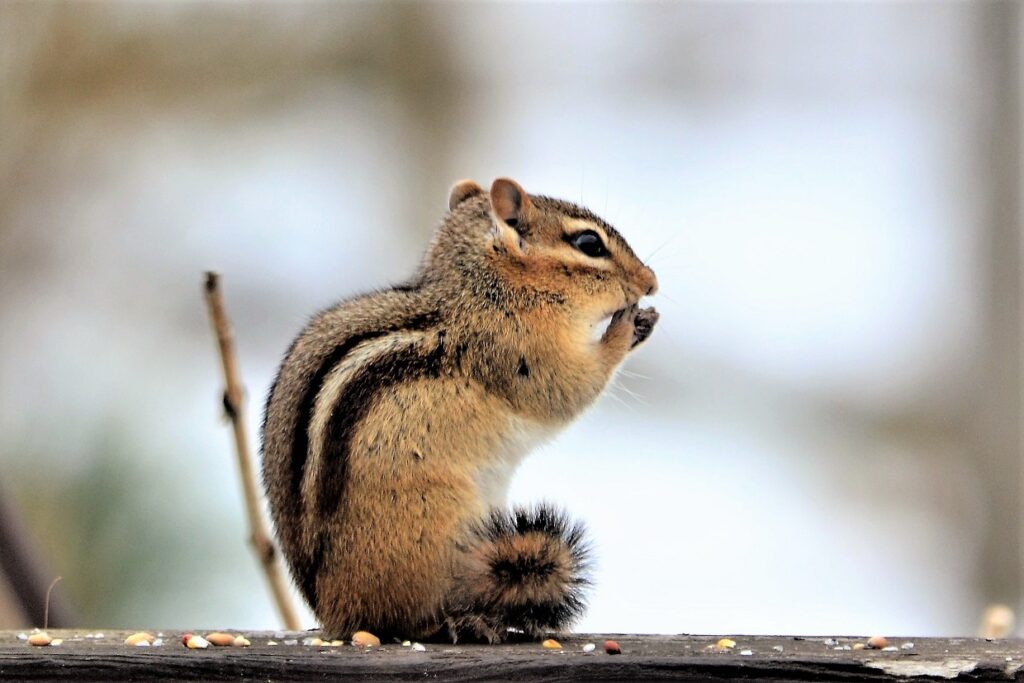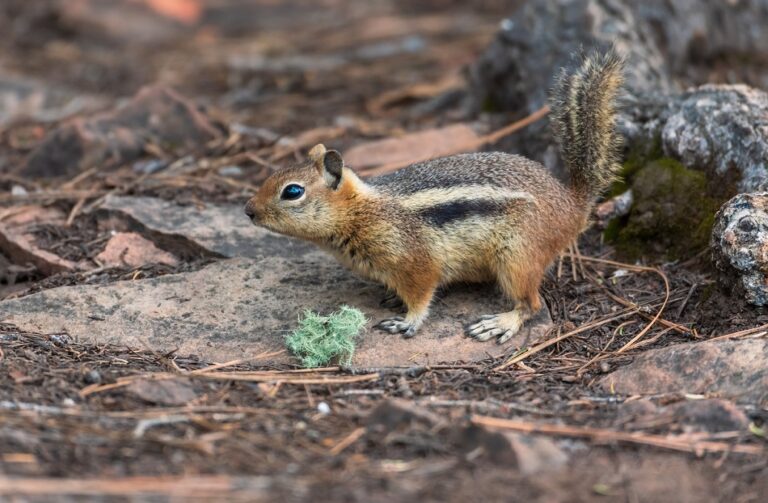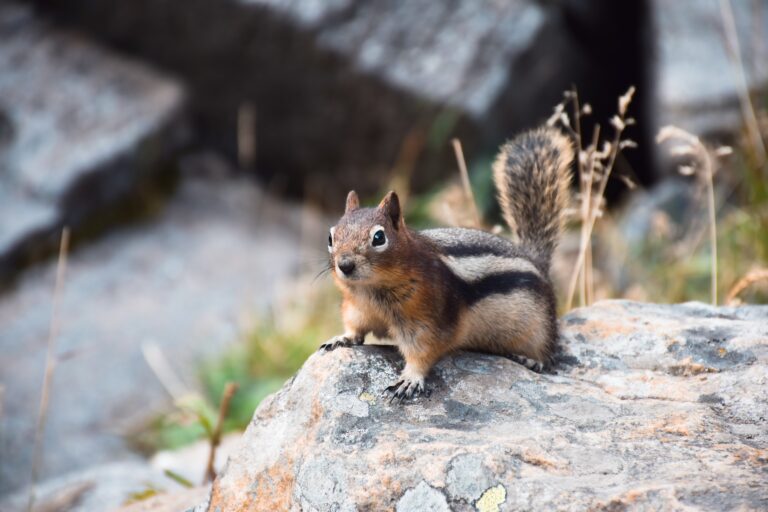 Do Chipmunks Hibernate In Winter?
Do Chipmunks Hibernate In Winter?
Whenever there is cold weather, chipmunks spend most of their time hibernating and simply sleeping or resting in their dens. They are known to be quite occupied, and just one of them will quickly gather up to 165 acorns per day.
In as little as two days, the chipmunk will have managed to collect enough food to take them through the whole winter season. However, they are also known to store up more food than is necessary, so they will typically have collected more than they need for the cold months.
Even though they are known to hibernate during the winter, chipmunks will not be asleep for the entire season as most other hibernators do. They will typically retreat back to their burrows. Occasionally, they wake up to bring their body temperature back to normal.
When they are on these awake breaks, the chipmunks will feed on the food stored over time to build up their fat reserves. This is very important for the cold season aa it allows them to stay protected from the cold. Every few days, the chipmunk wakes up for temperature adjustment, has a few more nuts, and quietly goes back to sleep for some more days.
What Months Do Chipmunks Hibernate?
The typical period for chipmunk hibernation lies between October and the middle of March. This is usually when the weather outside is harsh and the temperatures have dropped to deficient levels.
The chipmunks in the southern parts of the US have better weather, as it is much warmer in these places. As such, they will hibernate for a shorter amount of time, between December and late January. Their bodies also undergo essential changes that enable them to survive the winter.
These are all important as they ensure that the chipmunk can survive the harsh, cold months and get them through safely and as intact as possible. The months of hibernation are generally uneventful, and not many things happen during that time for chipmunks.

At What Temperature Do Chipmunks Hibernate?
At around 40°F is when the chipmunk starts to hibernate. Once it has gotten cold enough, it will retreat to its burrow to spend the winter.
Other things also happen when the chipmunk is undergoing the hibernation process. These enable them to spend as little energy as possible, and as such, they will easily manage to get through the winter with much ease. For instance, their body temperature will start to lower to match them with their surroundings. As such, they will not lose heat quickly, allowing them to maintain a constant temperature for the rest of the winter.
They will also slow their heart rate down from the usual 350 beats per minute to a mere four beats per minute. This is several magnitudes slower and indicates the changes the chipmunk has to undergo to stay safe and warm for the winter. When their hearts are beating this slow, they can sleep out the rest of the winter and get the rest they have worked so hard for.
Where Do Chipmunks Sleep In The Winter?
The most excellent chipmunk preference is to live alone in an underground hole or burrow, referred to as a den. They like to hibernate when the weather is cold, and this is where they will spend most of their time, staying insulated from the harsh cold temperatures outside.
They are usually relaxed when in hibernation, and most of their body functions are significantly slower to enable them to get through the cold winters. Most of the time a chipmunk spends in hibernation goes to sleep while a portion is reserved for feeding, urinating, and defecating.

What Do Chipmunks Eat When They Hibernate?
Inside a chipmunk’s den is enough storage space for their nuts and seeds. These nuts and seeds are essential as they are a food source for the chipmunk that lasts through the entire winter. They love to eat and will wake up occasionally to get fed and get the break they need from the enormous amount of rest they have had.
Chipmunks usually gather enough nuts and seeds to eat throughout the winter, which is what the rest of the year is meant for. They are very hardworking creatures and, as such, will work through all kinds of challenges to get the much-needed supplies in storage and ready for the cold winter months.
Our experts are trained to remove all types of nuisance wildlife, including chipmunks. We provide effective trapping and removal services in Westchester County, Dutchess County, Putnam County, NY, and Fairfield County, CT. So if you’re having chipmunk issues on your property at any time of the year, call Westchester Wildlife to get rid of them!
FLYING SQUIRRELS IN YOUR HOME:
The Northern Flying squirrels will often find small openings in the corners of dormers on the home around the gutter line where drip edge may be missing. Also, in a rotted soffit area or just simply use an entrance created by a woodpecker or other animal.
Read moreThe North American Red Squirrel can also be referred to as pine squirrels and chickarees. Red Squirrels differ from other North American tree squirrels in that they are smaller in size and have reddish fur with a white belly. They are actually not much bigger than chipmunks.
Read more